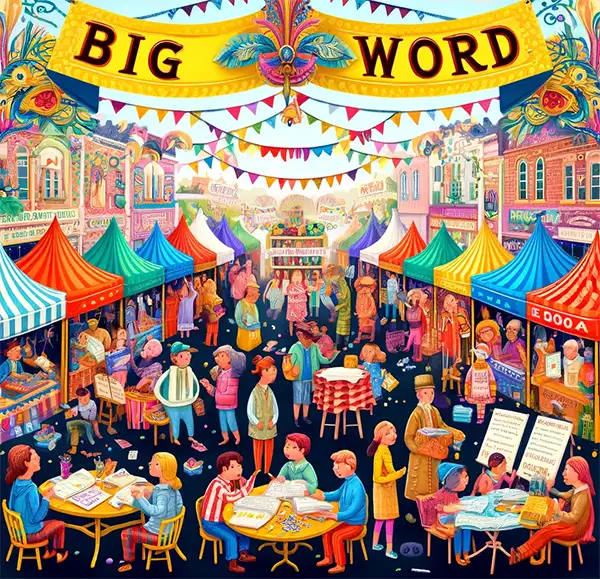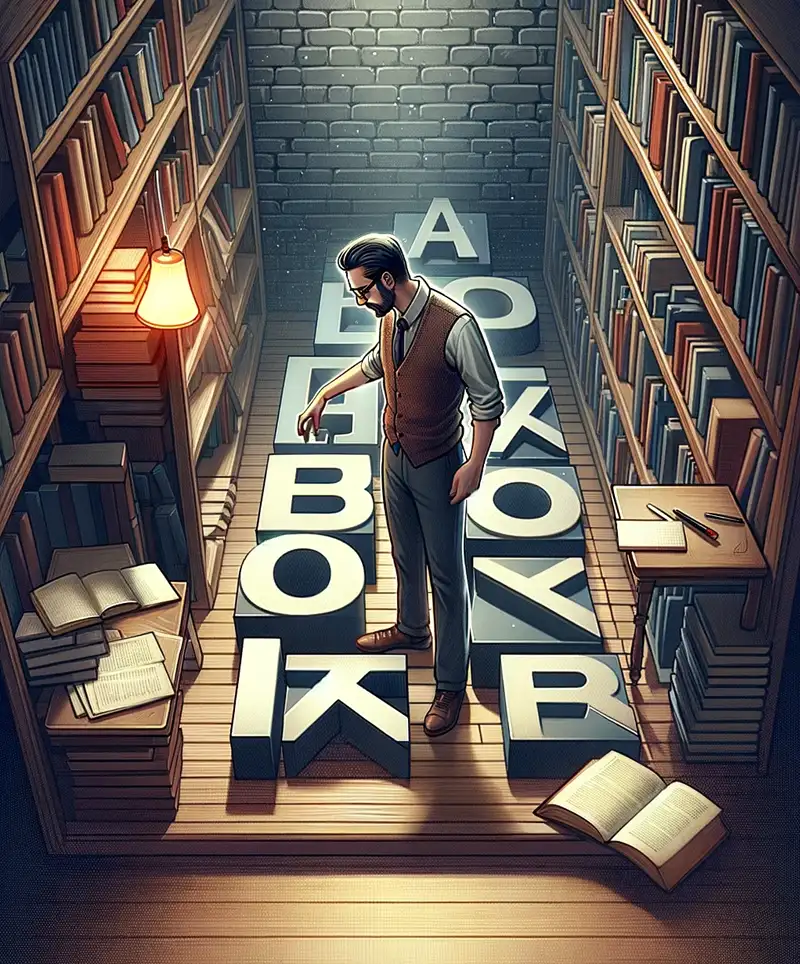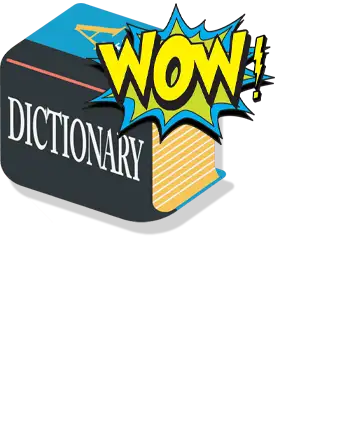A Linguistic Festival of Vocabulary
Have you ever wanted to befuddle your friends with an ostentatiously sesquipedalian remark? Or perhaps you yearn to sprinkle your conversations with words so grandiloquent that even Shakespeare would raise an eyebrow? If so, Big Word Day is your time to shine!
Every year on April 21st, lovers of loquaciousness unite to celebrate the most elaborate, labyrinthine, and syllable-heavy words in the English language. This whimsical holiday isn’t just about showing off your vocabulary (although, let’s be honest, that’s half the fun)—it’s about embracing the richness of language, exploring its quirks, and reveling in the sheer joy of words that are as fun to say as they are to understand.
So, dust off your thesaurus, flex those verbal muscles, and prepare to bamboozle unsuspecting bystanders with your linguistic prowess—it's Big Word Day, and verbosity is the order of the day!
The Origins of Big Word Day
The exact provenance of Big Word Day is shrouded in mystery, much like the etymology of the word floccinaucinihilipilification (which, incidentally, means the act of estimating something as worthless—ironic, considering how valuable vocabulary can be).
While no single lexical luminary has claimed responsibility for this verbal extravaganza, it is widely believed to have emerged from academia, possibly as a challenge among students eager to outdo each other in loquacious one-upmanship. Professors soon caught on, endorsing the holiday as a delightful reprieve from monotonous lectures, and before long, word nerds everywhere were hurling multisyllabic missiles at one another in the name of linguistic excellence.
With the rise of the internet, Big Word Day transcended the ivory towers of academia and infiltrated social media, where self-proclaimed verbivores (yes, that’s a real term for people who devour words) began competing in friendly battles of vocabulary supremacy. Libraries, schools, and literary groups jumped on board, turning the day into a celebration of language, learning, and the art of overcomplicating simple statements just for the fun of it.
And thus, a once-esoteric challenge among language lovers evolved into a full-fledged festival of verbosity—where using the word "utilize" instead of "use" is not only accepted but actively encouraged.
 How to Celebrate Big Word Day
How to Celebrate Big Word Day
So, you want to commemorate Big Word Day in style? Excellent choice! But beware—this is no day for casual chitchat or simple sentence structures. If you're going to partake in this lexical gala, you must commit to verbal ostentation with unflinching dedication. Here’s how:
- Word Challenges and Games: Nothing says Big Word Day like friendly linguistic combat. Challenge your friends, colleagues, or unwitting strangers to use the biggest words they know without sounding like a malfunctioning thesaurus.
Ideas include:
-
- “Big Word Bingo”—Create a bingo card with obscure words and mark them off when you hear them used in conversation.
- Scrabble: Extreme Edition—Only words with eight letters or more count for points.
- The "Unnecessary Complexity" Challenge—Try to describe everyday activities using the most over-the-top vocabulary possible. Example: “I am presently engaged in the meticulous observation of cinematic narratives whilst concurrently ingesting salted maize kernels.” (Translation: I’m watching a movie and eating popcorn.)
2. Educational Workshops
For those who prefer a more erudite approach, consider attending a wordsmith workshop or a lecture on the etymology of polysyllabic monstrosities. Libraries and schools often host events where linguists and lexicographers share insights into the evolution of complex words and their roles in modern communication.
If you can’t find an event near you, create your own! Invite friends to a Word Party, where everyone must speak exclusively in preposterously protracted parlance. Just be prepared for the inevitable moment when someone breaks down and yells, “CAN WE JUST SPEAK NORMALLY?!”
3. Dig Into Literature
Some of history’s greatest writers were absolute word hoarders. What better way to honor Big Word Day than by delving into the prose of literature’s most verbose authors?
Consider:
-
- James Joyce (Ulysses) – Infamously complex and likely to leave you questioning reality.
- William Faulkner – Sentences so long they require a lunch break halfway through.
- H.P. Lovecraft – Because describing horror in simple terms would have been far too pedestrian.
- Shakespeare – The original wordsmith wizard, who casually coined over 1,700 words.
If you prefer modern options, why not peruse an online dictionary for an hour? It’s the literary equivalent of a treasure hunt, except instead of gold, you find delightfully unnecessary vocabulary to unleash upon your unsuspecting friends.
The Benefits of a Bulky Vocabulary
Sure, Big Word Day is a fantastic excuse to flex your lexical muscles, but having an extensive vocabulary isn’t just about sounding smart—it actually makes you a better communicator, a sharper thinker, and a Scrabble champion.
Perks of Expanding Your Word Arsenal:
✅ Improved Communication – The right word at the right time? Priceless.
✅ Better Writing Skills – Fancy vocabulary makes essays flourish and emails impressive.
✅ Enhanced Brainpower – Learning new words = mental gymnastics for your brain.
✅ Confidence Booster – Nothing feels more powerful than dropping a word that leaves people scrambling for a dictionary.
Of course, overdoing it has its risks. Use words like "perspicacious" (which means keenly perceptive) in casual conversation, and people might assume you’re an AI in disguise. But hey, at least you’ll never be accused of being boring.
Fun Facts About Big Words
🔹 The longest word in the dictionary is pneumonoultramicroscopicsilicovolcanoconiosis—a lung disease caused by inhaling fine silica dust. Try saying that five times fast.
🔹Shakespeare invented words like "gloomy," "fashionable," and "swagger." If he were alive today, he’d probably have a killer Twitter account.
🔹The word "hippopotomonstrosesquipedaliophobia" ironically means fear of long words. Whoever named it had a twisted sense of humor.
🔹The average English speaker knows around 20,000 words, but only actively uses about 2,000 in daily conversation. Time to upgrade that linguistic inventory!
Big Word Day is a glorious occasion for reveling in the sheer majesty of language. Whether you’re casually tossing out ostentatious vocabulary or engaging in a full-scale verbal joust, this is your day to indulge in lexical luxury.
So, unshackle yourself from pedestrian parlance, embrace the majesty of polysyllabic splendor, and let the world bask in your sesquipedalian brilliance. Just remember—sometimes, the biggest word isn’t always the best word. Unless, of course, it’s pneumonoultramicroscopicsilicovolcanoconiosis. In that case, go for it.
Happy Big Word Day!
Please Share our Content






 How to Celebrate Big Word Day
How to Celebrate Big Word Day








 "Sláinte!" is a traditional Irish expression used as a toast, equivalent to "Cheers!" in English.
"Sláinte!" is a traditional Irish expression used as a toast, equivalent to "Cheers!" in English.